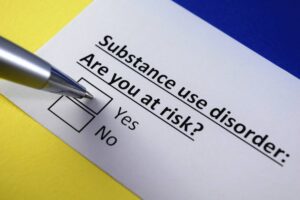Alcohol affects everyone differently, which can mean having a universal equation to detect how much alcohol is in someone’s system is impossible. Several factors influence how alcohol will affect any given person, including gender, size, amount of alcohol consumed, and type of alcohol consumed.
While a person may no longer feel the effects that alcohol creates, that doesn’t necessarily mean that they don’t have alcohol in their system. People may not feel drunk and still be over the legal blood alcohol concentration (BAC) limit. This has a lot to do with a person’s tolerance and perception of what it means to be unable to operate efficiently.
If you have to undergo an alcohol test to determine if you have consumed alcohol, you might not be as in the clear as you think. Keep reading to learn more about how long alcohol stays in your system and how long it can be detected through multiple methods of testing.
What Happens When You Drink Alcohol?
As soon as you start drinking alcohol, it enters your bloodstream, working to help you undergo various effects, from giddiness to a loss of coordination. Some effects are deemed more positive than others, but all of them lead to lowered inhibitions and a loss of control over your functioning.
Everyone is affected by alcohol in their own unique way, and the amount of alcohol consumed by a person can influence different behaviors. The more a person drinks, the more incapable they become of making good decisions and taking care of themselves.
Side Effects
Common side effects that a person consuming alcohol will undergo are:
- Relaxation
- Drowsiness
- Sense of euphoria
- Loss of coordination
- Slurred speech
- Impulsive behavior
- Mood swings
- Boost in confidence
- Giddiness
- Nausea
- Head pain
- Inability to focus
- Loss of consciousness
These effects can set in at different stages in alcohol consumption, with some of the more serious ones like loss of consciousness and impulsive behaviors happening after several alcoholic beverages.
How Long Is Alcohol in Your System?
Alcohol is not a substance that typically is tested for unless there is a specific reason due to an accident in the workplace or a legal case. Most drug tests that are undergone don’t seek out alcohol in the results, but that doesn’t mean that it doesn’t happen!
How long alcohol stays in your system and can be detected depends on the testing method. Most people will test using one of the following five methods: urine, blood, breath, saliva, and hair.
Urine
Alcohol stays in your urine for between 12 and 72 hours, depending on your test type. Some newer methods can detect it for up to 72 hours or more, but the typical tests can find it in your system anywhere between 12 and 24 hours.
However, urine tests don’t measure BAC; rather, they test whether or not a person has consumed alcohol within a certain time frame. One type of urine test, known as an ETG test, detects byproducts of alcohol found in the urine up to 72 hours after drinking.
Blood
Alcohol stays in your blood for up to six hours and is only detectable via blood tests for around that same amount of time, with a maximum of up to 12 hours. While blood alcohol level tests are the most accurate way to test for blood alcohol content in a person’s system, they do require specific medical training and aren’t always the handiest of test methods.
Breath
A breathalyzer is often the most common type of test for detecting BAC and the presence of alcohol, spanning anywhere from 12 to 24 hours after your last drink of alcohol. This means that even after a night of drinking, you could wake up the next morning and still be above the legal limit. If you were pulled over while driving between those 12 to 24 hours, you might still be at risk of failing a breath test.
Saliva
The presence of alcohol can be detected in a person’s saliva for between 12 and 24 hours, similar to the length that it’s detectable in the breath. Saliva tests are the most accurate to determine whether or not someone has consumed alcohol, but not to determine their BAC.
Hair
When it comes to hair tests, alcohol can be detected in hair follicles for up to 90 days. This doesn’t necessarily pinpoint exactly when it was that you consumed it, but if you aren’t supposed to be drinking, you’d have to wait 90 days after your last drink to have a negative hair test result.
Factors That Influence Alcohol Detection
There are a variety of factors that influence how a body absorbs and processes alcohol. Different people may react differently to alcohol, so not everyone goes through the same experience. A few factors, such as body fat and age, play into a person’s response to alcohol consumption that is consistent, whereas other factors change each time you drink alcohol.
Gender
Gender can have an impact on how a body processes alcohol because of an enzyme called dehydrogenase. This enzyme helps to break down alcohol in the liver, but women have less of it than men, meaning their bodies break alcohol down slowly. Additionally, women typically have a lower muscle-to-body-fat ratio, which also impacts the breakdown of alcohol.
Due to these two things, women can reach higher levels of intoxication at a much quicker rate than most men. Even if a woman and a man drank the same amount of alcohol at the same rate, there would likely be less impact on the man.
Age
Younger people typically have a faster metabolism than older people, so they can process and eliminate alcohol at a quicker rate. It’s also why you might wonder, as you age, why you can’t drink in the same fashion as you used to.
As we age, there is a slowing of our metabolism, a decrease in our water weight, and a loss of muscle tissue, which can impact how alcohol affects us.
Contents of Stomach
When someone drinks on an empty stomach, there is a speeding up in how alcohol impacts them. You might hear people encouraging you to eat before starting to drink, and that’s because it allows for a slower absorption process.
It takes you longer to feel the effects of alcohol when you’ve eaten a big meal, especially if it is high in protein. Drinking water can also help before consuming alcoholic drinks.
Type of Alcohol Consumed
What kind of alcohol you consume can impact how alcohol impacts you and how long it stays in your system. Some alcoholic beverages have higher alcohol concentrations than others, meaning you consume more alcohol with every drink.
Certain spirits and wines might have a greater effect on you than beers or ciders, but you should check the percentages of each drink you have before consuming.
Individual Tolerance
Depending on how much a person drinks regularly, their tolerance will differ from the next. When someone has a higher tolerance, they can consume more in one setting without feeling all of the normal side effects.
What this means, though, is that even though those people don’t feel the same effects, it doesn’t mean that they have a lower BAC level. A person could be perceived as completely sober but have a higher BAC level double the legal limit.
When someone who doesn’t drink frequently has alcohol, it may only take one drink to feel its effects. Consequently, that person may feel inebriated and incapable of proper functioning, but they may be within the legal BAC levels.
Seeking Treatment for Alcohol Use
Not everyone must have a substance abuse problem with alcohol to receive treatment. Some people may not be comfortable with how they react to alcohol and what it does to their mental health or body and want to find a way to eliminate it from their life.
So many people decided not to get help because they think their problems aren’t as bad as others, but that really is the perfect excuse to change. You don’t want your relationship with alcohol to worsen or lead to binge drinking, especially if you already have conflicting feelings about it.
If you or a loved one are struggling with their alcohol abuse, you can reach out to a representative at Soba Recovery Center in San Antonio, Texas, to learn more about ways that we can help. There are many options for people wanting to change their relationship with alcohol.
Whether total abstinence is your thing or you are trying to find a way to detox and improve your behaviors surrounding alcohol, we can help you get to a place where you feel confident and healthy.
Through both inpatient and outpatient treatment programs, you can gain access to medical professionals, therapists, and other sober-seeking individuals who are on the same journey as you. Don’t wait for things to progress; get help with Soba today!
Sources:
What Is Blood Alcohol Concentration (BAC)? | Vaden Health Services





